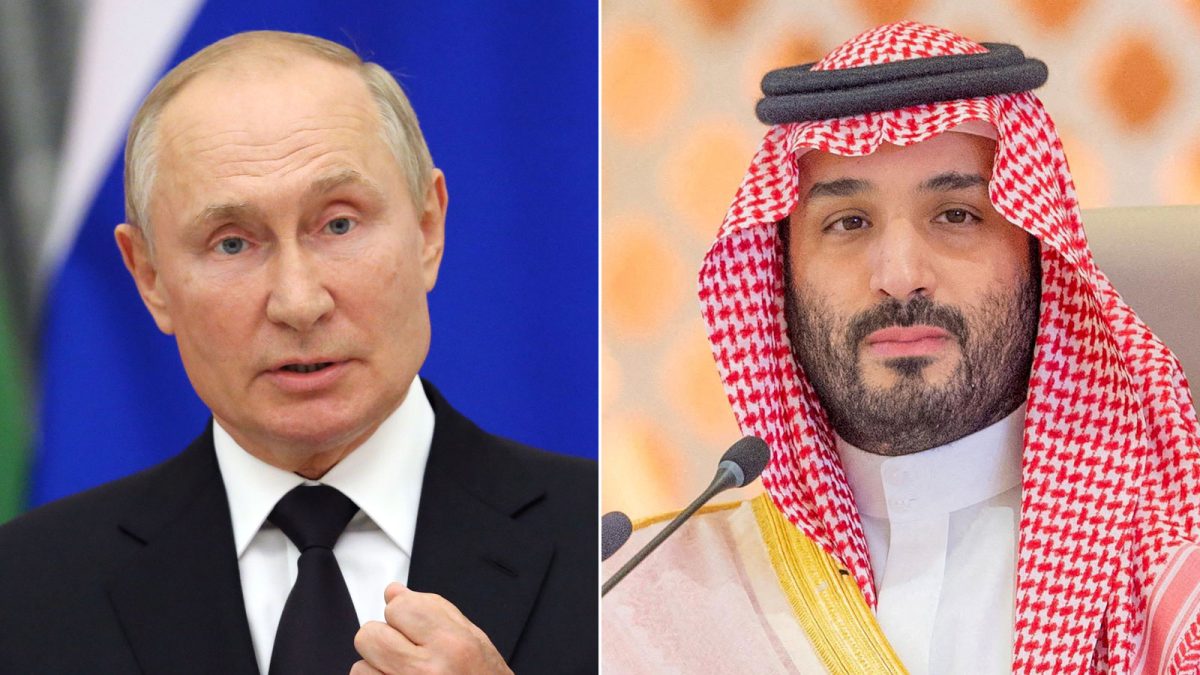“Issues of multifaceted Russian-Saudi cooperation were discussed. Specifically, attention was paid to measures for further strengthening trade and economic ties, and the implementation of prospective joint projects in investment, transport logistics, and energy,” the statement read.
“The two sides discussed in detail how to ensure stability in the world energy market. The sides expressed great appreciation for the level of cooperation within the framework of ‘OPEC Plus,’ which allows for taking timely and efficient steps to maintain the balance of supply and demand for oil. They noted the importance of the agreements reached during the recent ministerial meeting in Riyadh,” according to the statement.
They also discussed “various aspects of Russia-Saudi cooperation in the framework of other multilateral organizations” and “agreed to continue contacts at various levels,” the Kremlin added.
The last time the two spoke on the phone was on April 21, according to Russian state news agency TASS.
OPEC+ is an alliance between the Organization of the Petroleum Exporting Countries (OPEC) and a group of non-OPEC oil-producing countries, including Russia, Mexico, and Kazakhstan.
Formed in 2016, OPEC+ coordinates and regulates oil production and stabilizes global oil prices. Its members produce about 40% of the world’s crude oil and have a significant impact on the global economy.
OPEC+’s decision to cut oil production in April could have big implications for Russia.
After Russia invaded Ukraine last year, the United States and United Kingdom immediately stopped purchasing oil from the country. The European Union also stopped importing Russian oil that was sent by sea.
Canada, France, Germany, Italy, Japan, the United Kingdom and the United States — have also imposed a price cap of $60 per barrel on oil exported by Russia, keeping the country’s revenues artificially low. If oil prices continue to rise, some analysts have speculated that the US and other western nations may have to loosen that price cap.
